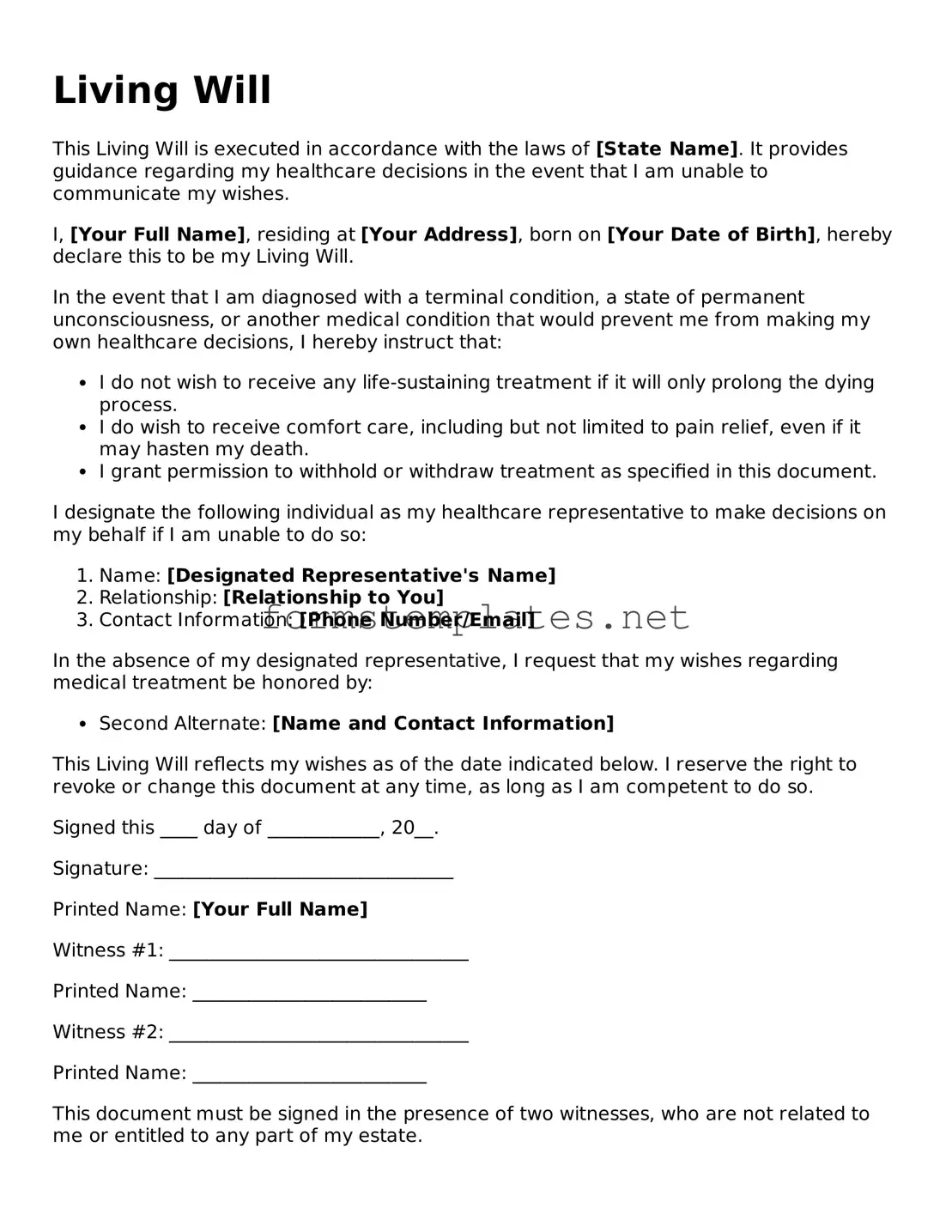Attorney-Verified Living Will Form
A Living Will is a legal document that outlines your preferences for medical treatment in case you become unable to communicate your wishes. This form allows you to specify what types of life-sustaining measures you want or do not want. Having a Living Will ensures that your healthcare decisions align with your values and beliefs, even when you cannot speak for yourself.
Open Editor Now

Attorney-Verified Living Will Form
Open Editor Now

Open Editor Now
or
⇓ PDF Form
Your form still needs attention
Finalize Living Will online — simple edits, saving, and download.